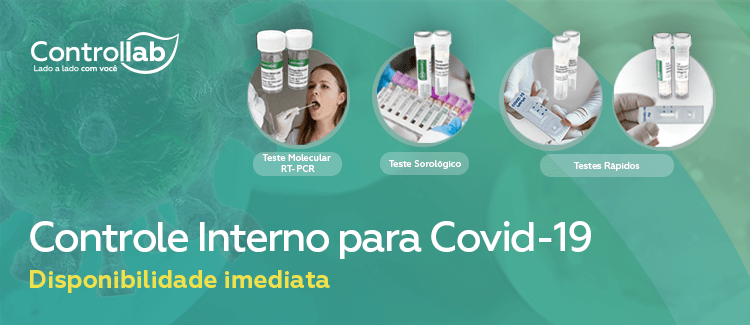The importance of laboratory tests for the diagnosis of patients with Covid-19 has been widely reported, but just as important as expanding the number of tests is having those that provide adequate information.
The increasing demand for tests and more agility in the publication of results requires that the laboratories that perform the analysis commit to quality tools. This commitment extends to kit manufacturers and distributors, who must uphold their customers’ best practices as they affect the reliability of their tests.
With the dissemination of the cases, there was an expansion of the available methodologies for the detection of SARS-CoV2. Having a quality control applied to each of them is essential to guarantee the reliability of the results.
Controllab is committed to this cause and already offers internal quality control for all methodologies. The programs of the Internal control of Controllab are considered third opinion controls. The materials have an inter-laboratory assessment in different rapid diagnostic test (TLR) systems, molecular and automated tests, such as: Roche Elecsys (Cobas e601, e602, e411, e801), Abbott (Architect i1000sr and i2000sr), Euroimmun, MagLumi, among others. These multiple evaluations allow the laboratory to detect more sensitive variations, which are not perceived in the controls of the analytical system manufacturers.
Controls are lyophilized – allowing better stability during transportation – and are distributed in different compositions to meet the most varied routines. These controls are available for immediate shipment, at the request of the laboratory, or scheduled monthly.
Two tools have been highlighted in good practices for composing exam quality control: The Internal Control (IC) and the Proficiency Test (EP). Recommended worldwide for the operation of analytical laboratories, they are essential for monitoring analytical performance and, linked to a management committed to quality, help to produce reliable results.
The first EP for all SARS-CoV2 methods was made in May. The behavior obtained in the comparison between laboratories was analyzed by a group of specialists in the diagnostic sector and made available in a report.
Data analysis showed the importance of continuous use of reference material, such as internal quality control, to validate routines on a daily basis and eliminate interferences that negatively reflect the reliability of patient results.

